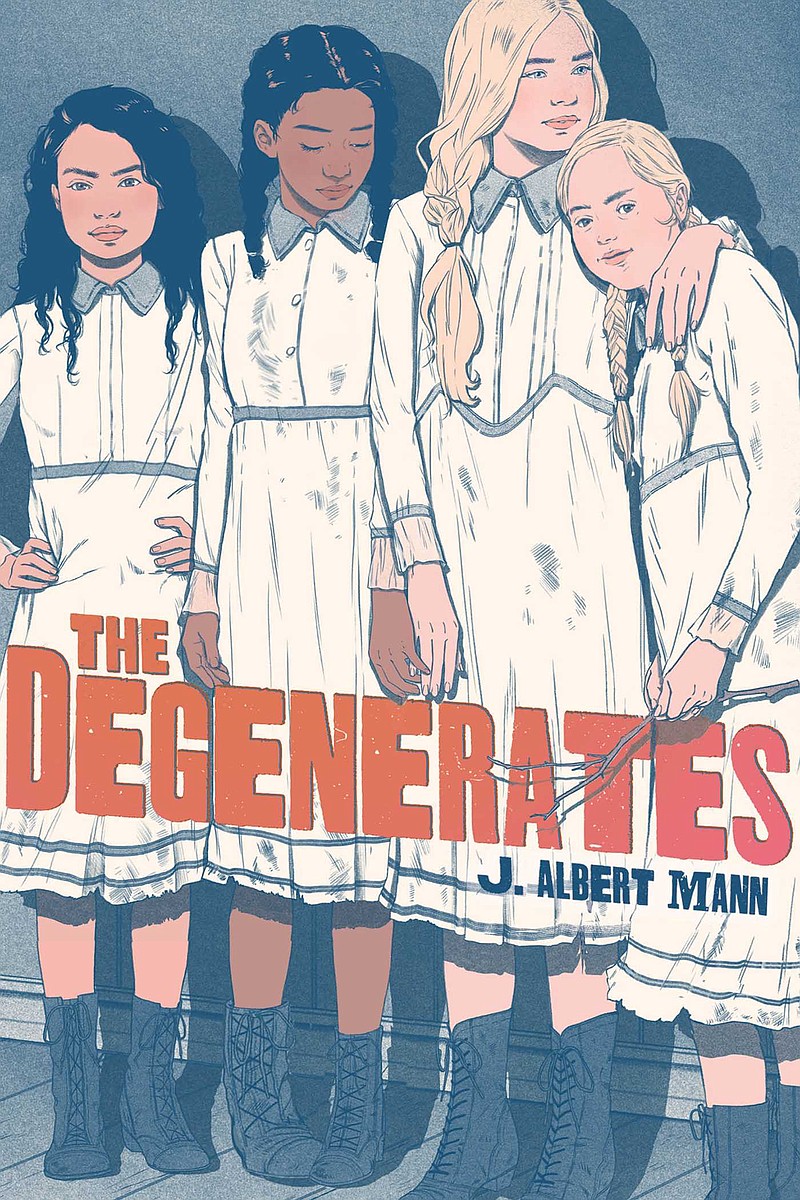Life is difficult for London.
She's young, orphaned, unmarried and pregnant.
On the upside, she's finally settled into the best foster home she's ever had.
But then the police barge in and drag her off to what will become her new home: the Massachusetts School for the Feeble-Minded. London doesn't really want to get to know her fellow "students;" she plans to escape as soon as possible.
Some of the girls are indifferent to her, some are outright bullies, but there are three other girls in the neighboring bunks that chip away at London's resolve to remain unattached. There's Rose, who has Down's syndrome and is kind and clever. There's Rose's sister, Maxine, whose diagnosis is something she prefers to keep secret and is fiercely protective of Rose. And then there's Alice who is Black and was born with a club foot - she's Maxine's best friend and is equally dedicated to Rose's well-being.
London quickly realizes this really isn't a school at all; it's an institution people are placed in when society has deemed them unfit in one way or another. Even worse, there's no way out. Once a person turns 18, they move into the adult portions of the school where they are put to work even as they continue to be treated as less than human.
As Maxine, London and Alice approach their 18th birthdays and imminent separation from Rose, London's plans to escape expand to include all four girls.
Places like the Massachusetts School for the Feeble-Minded as described in "The Degenerates" by J. Albert Mann were very real and their "students" really were just about anyone who didn't fit the societal standards of the time. Being born with any sort of disability or birth defect, being gay, being a person of color, being pregnant, poor and unmarried - any of these characteristics could be enough for a life sentence in these institutions in the early 1900s.
Mann gives us a peek into what these institutions would have been like and does so with the utmost love and respect for her characters. Readers may be shocked to hear the girls diagnosed as "imbeciles," "idiots" or "morons," but an author's note at the end indicates these were all actual diagnoses written by doctors and nurses from that time period.
These diagnoses have fallen out of favor over the years, but readers will come away with the understanding of just how arbitrary the standards for institutionalization were as well as how poorly patients were treated once they were sucked into the system. An extensive bibliography is included should readers decide to research this dark era further.
"The Degenerates" is, at times, a disturbing read, but the characters themselves are full of heart, warmth and humor. Readers will be rooting for this quartet of friends through to the very end.
Courtney Waters is the teen services manager at the Missouri River Regional Library.

